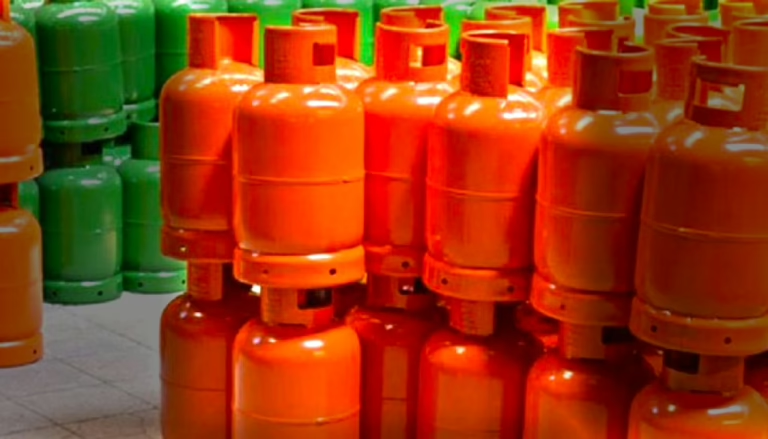The surge in cooking gas prices across Nigeria’s major urban centers has become a pressing issue, with many families finding it increasingly difficult to afford this vital household necessity.
In numerous regions, the cost of liquefied petroleum gas (LPG) has nearly doubled within a short span, now ranging between ₦2,000 and ₦3,000 per kilogram.
During an interview on Channels Television’s morning program, ‘The Morning Brief,’ the National President of the Nigerian Association of Liquefied Petroleum Gas Marketers (NALPGAM), Mr. Oladapo Olatunbosun, clarified that the price hike was not due to any formal government revision. Instead, he attributed the spike to unscrupulous marketers exploiting temporary shortages in supply.
“I want to emphasize that there has been no official increase in cooking gas prices,” he stated firmly.
“What we are witnessing is some traders taking advantage of the limited availability and the heightened demand in the market. Our association condemns such practices, and we are confident that the situation will normalize shortly,” he added.
Olatunbosun described the current scarcity as artificially induced and temporary, tracing its origin to a brief operational slowdown at the Dangote Refinery, which had previously enhanced local supply by cutting out intermediaries.
“Prior to the maintenance period, Dangote was dispatching around 50 trucks daily, effectively supplying the South-West and parts of the North. However, during the maintenance, trucks were delayed up to two weeks at the refinery before loading, compelling marketers to rely on Apapa depots for their stock,” he explained.
The predicament worsened when the Petroleum and Natural Gas Senior Staff Association of Nigeria (PENGASSAN) initiated a strike last week, disrupting the unloading and inspection of vessels, which led to a depletion of available stocks.
“Although Dangote continued production, the strike caused a rush to Apapa depots, which quickly ran out of product. Additionally, a vessel arriving from NOJ, intended to supply three depots, was unable to dock due to the strike. Even after docking, inspection officers were absent, resulting in a five-day delay and a significant backlog,” he detailed.
Mr. Olatunbosun highlighted that the South-West region bore the brunt of the disruption, as it consumes the largest portion of Nigeria’s LPG. He also pointed out that national LPG consumption has surged from approximately 1.2 million metric tonnes three years ago to nearly two million metric tonnes today, intensifying supply challenges during interruptions.
Despite these hurdles, the NALPGAM president reassured the public that efforts are underway in collaboration with relevant agencies to restore supply stability. He also advised consumers to purchase gas directly from licensed plants to avoid inflated prices often imposed by middlemen.






















